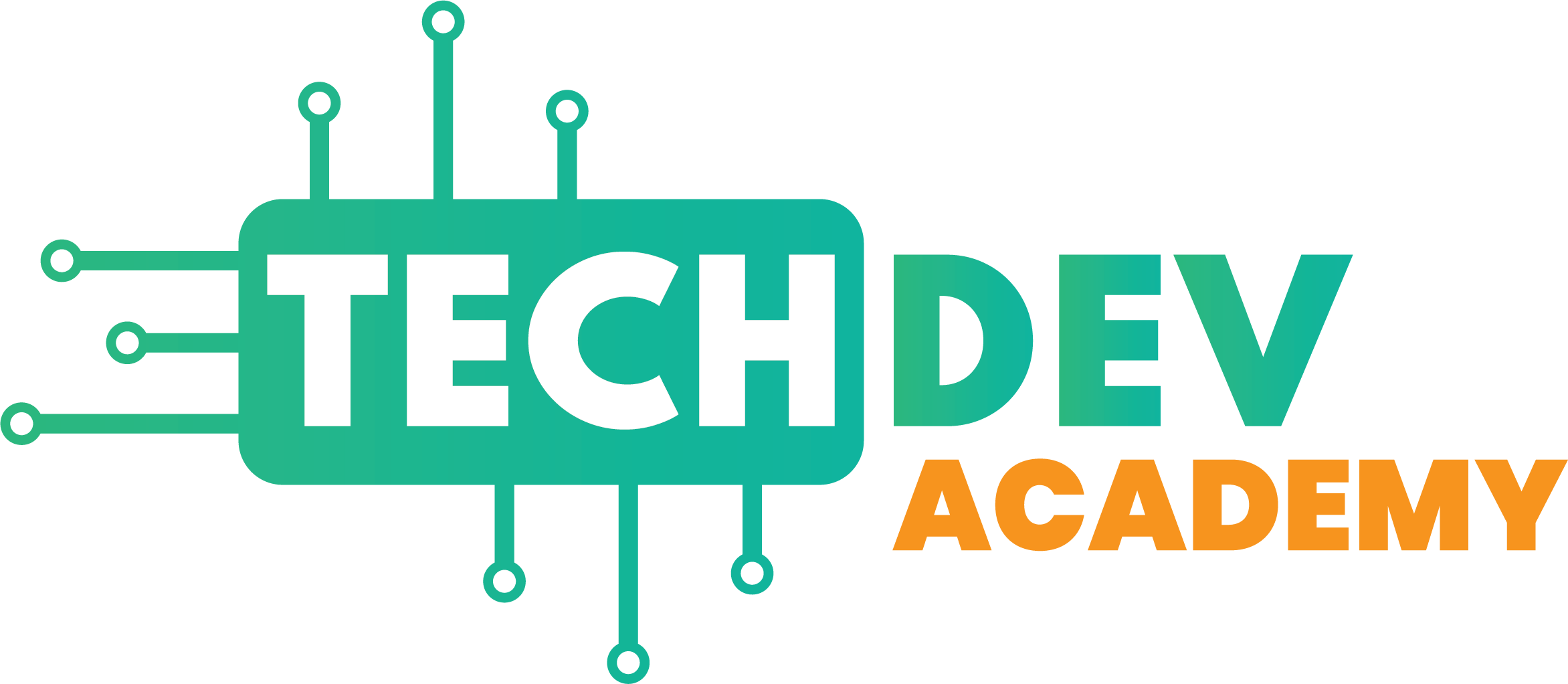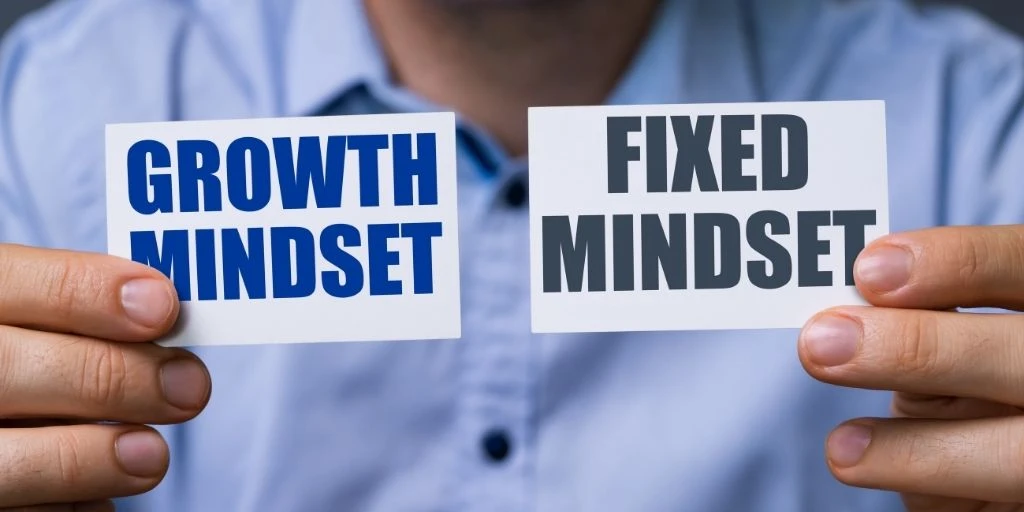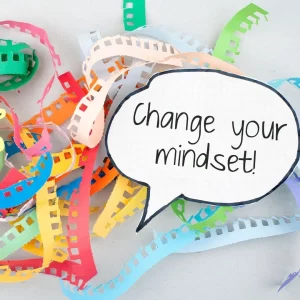Life is full of challenges and that cannot be overlooked or changed. But it’s your mindset that determines whether or not you’ll succeed and how much you can grow. Your mindset plays a vital role in how you deal with the challenges of life. You’ve probably already heard that there are two kinds of people – those with a fixed mindset and those with a growth mindset. If you are wondering what differentiates one from the other and how you can shift to a growth mindset, this post is for you.
What makes a fixed mindset different from a growth mindset?
A person’s mindset is the way he/she views the world and thinks and these two aspects essentially change his/her entire life. Here are the major differences between a fixed mindset and a growth mindset.
Intelligence and talent
- People with a fixed mindset believe that talent and intelligence are unchangeable. So, they see it as to whether they have it or not.
- People with a growth mindset believe that these aren’t inherent skills and can be acquired by investing in a serious effort.
Challenges
- A fixed mindset tries to avoid taking on new challenges. It stops the person from getting out of his/her comfort zone which limits his/her growth in life.
- A growth mindset, on the contrary, is always ready to embrace new challenges. The invested effort or work may fall short but the person keeps on trying to overcome it.
Failures
- Someone with a fixed mindset only views the negative aspect of failure. He/she gets stuck in life once it happens and starts to believe that success is unattainable for him/her.
- Someone with a growth mindset sees failure as an opportunity to learn and grow. He/she starts to think about how things can be done differently to achieve success.
Feedback and criticism
 A person with a fixed mindset usually reacts negatively upon receiving criticism or constructive feedback. He/she will either develop disdain or try to avoid or ignore it.
A person with a fixed mindset usually reacts negatively upon receiving criticism or constructive feedback. He/she will either develop disdain or try to avoid or ignore it.
- Someone with a growth mindset typically looks forward to constructive feedback. It helps the person to identify the lack of ability and talent in him/her.
Others’ success
- A fixed mindset won’t like to see others succeed in life. If others do, the person develops a feeling of insecurity and jealousy.
- A growth mindset would get inspired by seeing others succeeding. Such a person typically tries to help others succeed as well.
Accomplishment of goals
- People with a fixed mindset tend to be in a hurry to accomplish their goals instead of enjoying the journey to accomplish them.
- People with a growth mindset embrace the journey because they know it’s what makes their lives worth living.
Tolerance
- Someone with a fixed mindset gives up too easily without trying hard if something fails to work.
- Someone with a growth mindset never gives up something without achieving it. He/she sets clear goals, remains persistent, and pushes harder.
Learning
- A fixed mindset thinks that learning comes to an end after a certain point and he/she needs to utilize that knowledge for the rest of his/her life.
- A growth mindset understands that learning is a life-long process. The person keeps on learning and growing throughout his/her life.
Why you must embrace a growth mindset
It isn’t uncommon to hear a parent or a teacher saying to a kid something like “you aren’t smart enough” or “you’re naturally better at this, so you don’t need to work hard on this”. Statements like these are both negative and detrimental to growing minds.
Everyone is born curious and has aptitudes for certain things. But these statements keep on replaying in the kid’s mind ultimately damaging his/her self-confidence.
In simple words, you’ve got a fixed mindset, you start to believe that your talents, traits, and skills, and this mentality possibly stops you from learning anything new.
The professional world is changing rapidly in almost every aspect. To sustain in that world, everyone needs to adapt, learn, and challenge himself/herself continuously and this is something just not possible without having a growth mindset.
How you can practice a growth mindset
Generally, people tend to adopt a mindset, whether fixed or growth, at an early age, and for the rest of their lives, they operate based on that mindset.
Fortunately, a growth mindset can be developed by practicing it. You can try these strategies.
Change the way you think about yourself
If you are faced with a certain challenge and keep on saying to yourself “I won’t be able to do it” then it’d become your reality and you won’t be able to accomplish the goal. Simply switch the negative thought to “I’ll be able to do it”. It’ll motivate you to try harder to win the challenge.
Embrace learning instead of focusing only on the goals
It’s important to focus on and enjoy the process rather than just seeking goals. For example, if you want to lose 20 pounds in three months, commit to exercising and healthy eating every day. It’ll not only help you enjoy the small improvements you make day-by-day but will eventually add up and help you accomplish your goal.
Learn from the failures
Rather than escaping from or disregarding failures, find out the opportunity to improve its offers. In the event of failures, review them, point out what didn’t work and why, and chalk out a plan to rectify the mistakes to succeed next time. Once you start learning from failures and seeing them as opportunities to improve and grow, you’ll start to expand your abilities.
Final words
It’s important to understand that switching from a fixed mindset to a growth mindset isn’t something that can happen overnight. You need to keep on practicing the above-mentioned strategies regularly, whenever a situation arises. Remember that people with a growth mindset always stand a much better chance of succeeding in life than those with a fixed mindset. It’s all about what mindset you choose to follow. If you follow the right one, you’ll win always. So, start working on acquiring a growth mindset today, if you haven’t already.


